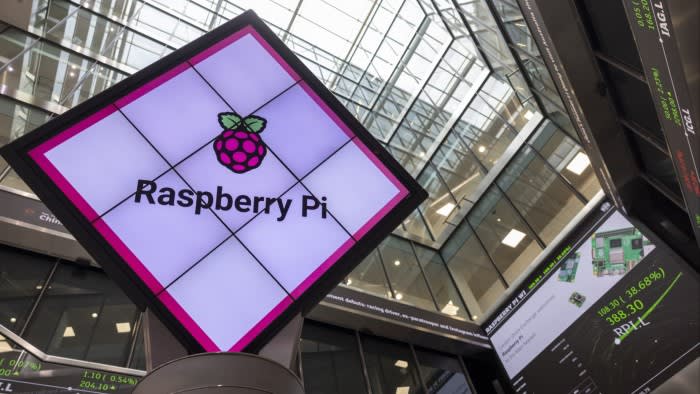Unlock the Editor’s Digest for free
Roula Khalaf, Editor of the FT, selects her favourite stories in this weekly newsletter.
Shares in Raspberry Pi jumped on Tuesday after the UK computer maker reported higher than expected profits in its first earnings report since its debut on the London Stock Exchange in June.
The Cambridge-based company, which makes small, low-cost computers, said sales volumes were slightly lower than expected but weighted towards higher-margin products, boosting profits.
Shares rose 8 per cent to 376p. They floated at 280p in June.
Raspberry Pi’s initial public offering, at a valuation of £542mn, was seen as a rare victory for the London market, which has been struggling to attract listings particularly from technology companies, which generally prefer New York.
The company reported a gross profit of $34.2mn in the first six months of 2024, higher than internal forecasts and a 47 per cent increase on the same period in 2023. Revenue for the period was $144mn, up from $89.3mn last year. It kept its full-year outlook unchanged.
Raspberry Pi began selling its products to the public in 2012. It was set up under the auspices of the Raspberry Pi Foundation, a UK charity founded in 2008 to promote computing to young people.
The company said the £178.9mn raised in the IPO would be used to fund engineering projects, with new product releases scheduled before the end of 2024.
Its listing was seen as a boost for the London stock market at a time when the listings market had been very quiet and with technology companies generally seeking to access deeper capital markets and higher valuations in the US.
Cambridge-based chipmaker Arm, one of Raspberry Pi’s shareholders, listed in New York for a $52bn valuation in September 2023.
Raspberry Pi’s chief executive Eben Upton told the Financial Times in June that there was too much gloom about the prospects of the UK stock market. “Many of the stories that people tell about the differences between the US and the UK — particularly this sort of magical [high valuations] — don’t seem to be real,” he said.


